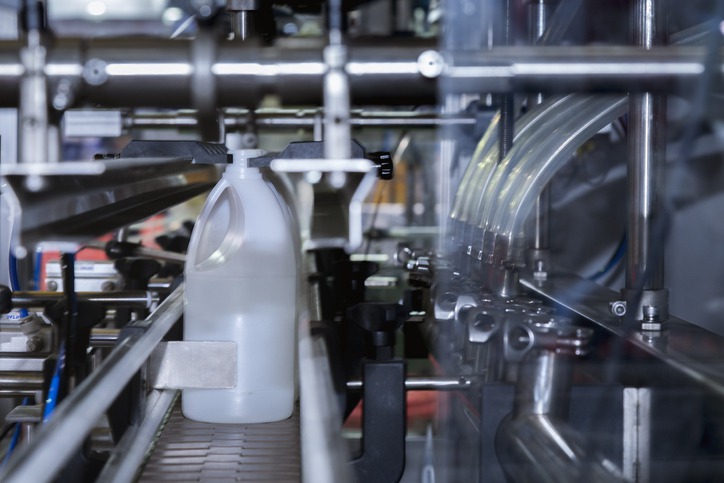
Where Are High-Purity Products Most Commonly Used?
In the ever-evolving landscape of modern industry, the demand for high-purity products is escalating, touching numerous aspects of our daily lives in ways often unseen. These refined materials play a crucial role in a wide array of applications, from advancing medical technologies to powering our electronic devices. This article will dive into the significant spheres where high-purity products are most commonly used, introducing the layperson to their critical presence in diverse industries.
High-Purity Products in Semiconductor Manufacturing
The semiconductor industry is a domain where the use of high-purity materials is not just common; it’s essential. Semiconductors form the backbone of contemporary electronics — from your smartphone to the computer that’s central to your work. These components rely on the highest possible purity of materials to ensure minimal electrical resistance and optimal performance.
Key Applications within the Semiconductor Realm
-
Silicon wafer manufacturing for microchips
-
Fabrication of LED displays, solar cells, and transistors
-
Vacuum systems ensure spotless environments for production processes
Manufacturers specializing in high-purity products play a pivotal part in this landscape, ensuring that industries have access to materials that meet the most stringent of quality standards. Their processes involve meticulous purification techniques and strict testing to guarantee excellence. As part of the burgeoning field of CPC manufacturing, these manufacturers are at the forefront of creating components that propel technological advancement and innovation.
Pharmaceuticals and the Demand for Ultra-Purity
High-purity products also find indispensable uses within the pharmaceutical industry. The development and manufacturing of medications entail stringent controls, where the smallest impurity can impact the efficacy and safety of a drug. The industry employs high-purity metals, solvents, and reagents to safeguard the health of consumers worldwide.
Crucial Points of Utilization
-
Production of active pharmaceutical ingredients (APIs)
-
Critical cleaning processes for eliminating contaminants
-
High-grade purification of water used in formulations
Medical Applications and High-Purity Standards
Medical technology is another sector with a non-negotiable requirement for high-purity products. These materials enable the production of medical implants, devices, and tools that come into direct contact with human tissues, necessitating the highest standards to prevent infection or reactions.
The Role of High-Purity Products in Medicine
The introduction of high-purity materials has revolutionized the precision of medical equipment and the reliability of numerous medical procedures.
The Aerospace Industry and the Need for High Purity
The exacting and unforgiving environment of space demands that every component used in aerospace applications meet rigorous purity standards. High-purity materials are used to fabricate everything from the spacecraft’s structural components to the specialized instruments and systems within it.
Advanced Applications in the Stratosphere
Aerospace advancements such as powerful jet engines and resilient space modules exemplify the reliance on high-purity products to provide the reliability and safety necessary for space exploration.
Electronics and the Criticality of Purity
The electronics industry relies on high-purity metals and compounds to produce circuits, batteries, and various electronic devices. The presence of impurities can greatly affect the performance and lifespan of electronic products, making high purity an indispensable criterion.
Highlight on Different Electronic Components
From the screens we stare at daily to the intricate circuit boards that power our appliances, high-purity products ensure that the electronic world remains functional and efficient.
Cleaning Agents and Chemicals with High Purity
Cleaning agents and specialized chemicals, particularly in critical environments like clean rooms or research labs, require high-purity products to prevent contamination and ensure unadulterated results.
Ensuring Spotless Results with Pure Agents
Critical environments where cutting-edge research and development takes place cannot afford the risk of contamination, hence relying on high-purity cleaning agents for their operational sustenance.
Refrigerants for LNG Liquefaction
In the energy sector, specifically with regard to natural gas, high-purity refrigerants are crucial. They are employed in the liquefaction process, where the gas is cooled to its liquid form for storage and transport.
This application demands refrigerants that meet specific purity standards to ensure efficiency and safety. Working with these LNG liquefaction refrigerant manufacturers is essential to maintain the integrity of the liquefaction process and, by extension, the energy supply chain.
Optics and High-Purity Materials
Optics, which includes everything from camera lenses to complex telescopic equipment, often uses high-purity silica and other materials to provide clear and undistorted views.
Zooming In on Optical Precision
Whether it’s facilitating the capture of life’s moments through lenses or assisting astronomers in peering into the cosmos, high-purity materials help ensure the highest fidelity in optical applications.
High-Purity Products in Environmental Technologies
Environmental technology, with its focus on sustainability and pollution control, frequently employs high-purity products. These materials are key in environmental monitoring equipment and pollution abatement processes.
Where Clean Technology Meets High Purity
Purification systems for water treatment, air pollution control devices, and advanced battery technologies for energy storage all benefit from the use of high-purity materials.
Refrigerants for Industrial Applications and Learning Opportunities
Industrial refrigeration is yet another domain where high-purity products are indispensable. From food preservation to chemical processing, the refrigerants used must be of the highest purity to ensure both efficiency and compliance with environmental regulations. To learn more about the complex relationship between refrigerants and industrial applications, one must delve into materials science and thermodynamic principles that govern these systems.
Wrapping Up
High-purity products might not always be visible to the naked eye. Still, their presence is felt across a broad spectrum of industries, playing a silent yet vital role in the technological advancements that define our modern era. From powering the smallest electronic devices to facilitating major industrial processes, these refined materials are the unsung heroes of quality and performance in myriad applications.

